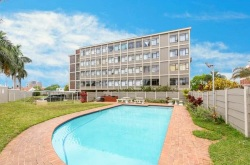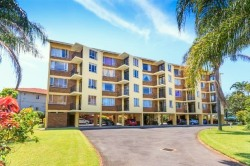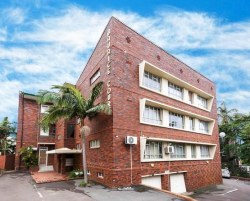It’s not surprising that apartment blocks are in increasing demand as people flock to South Africa’s urban centres like Durban looking for job opportunities and affordable accommodation.
This is according to Terence Hogben, principal of Leapfrog Durban Central, who says there is little land left for development in Durban, heightening the need for existing properties.
Add to this the fact that the middle to lower housing segments have consistently outperformed the upper end of the market during 2015 and it becomes clear that sectional title properties are hot at the moment, he says.
Hogben says apartments currently make up 65% of their business in their areas of operation, namely Morningside, Berea, Glenwood and Manor Gardens. Prices generally range from R500 000 to R1.5 million, with the sweet spot at the R900 000 mark.
”The buyers above R3 million are picky, demanding that the home has to be immaculate as buyers quite often don’t have anything left to spend on renovations after the purchase of the property,” says Hogben.
“Sellers need to realise that buyers are under a lot of financial pressure and cannot afford higher prices.”
 This two bedroom apartment in Morningside, Durban, offers an open-plan kitchen and lounge. It is selling for R885 000 - click here to view.
This two bedroom apartment in Morningside, Durban, offers an open-plan kitchen and lounge. It is selling for R885 000 - click here to view.He says the risk of not heeding this could cost sellers later when they have to reduce the property’s price and it becomes “stale” on the market.
“I feel that the people buying in the lower end of the market are not focused on the bad news in the country. They are just getting on with life, and this means finding a place to call home,” he says.
Hogben says due to the fact that areas like Berea and Morningside have a large number of heritage properties which are protected by Amafa aKwaZulu-Natali (Amafa), the provincial heritage society, there isn’t much space for further development. This is experienced particularly via the growing lack of available parking in these areas.
“Parking is a huge issue as, historically, having parking was not always necessary, and thus not provided for. If one can get an apartment in the R1 million region with two parking spaces in a semi decent area, it is gone in a flash,” he says.
Hogben says many apartment blocks are removing grassed areas and gardens to allow for more parking, but facing a lot of resistance from the older owners.
 This one bedroom apartment in Glenwood, Durban, is on the market for R630 000 - click here to view.
This one bedroom apartment in Glenwood, Durban, is on the market for R630 000 - click here to view.Quite often people rent spare parking spots in blocks of flats nearby, he says. If there is permanent street guard and cameras, people will put up with their second, lower value vehicle being parked outside.
“Unfortunately public transport is only a temporary solution. We find that those same people who are satisfied with using public transport aspire to eventually owning a vehicle, which compounds the problem.”
Hogben says based on the shortage of stock in these areas, it is clear that Durban North is a popular area in terms of residential property, with demand only being held at bay by availability.
Landlords and sellers would be wise to fashion secure parking if they’re to push up their asking prices successfully, he says.








